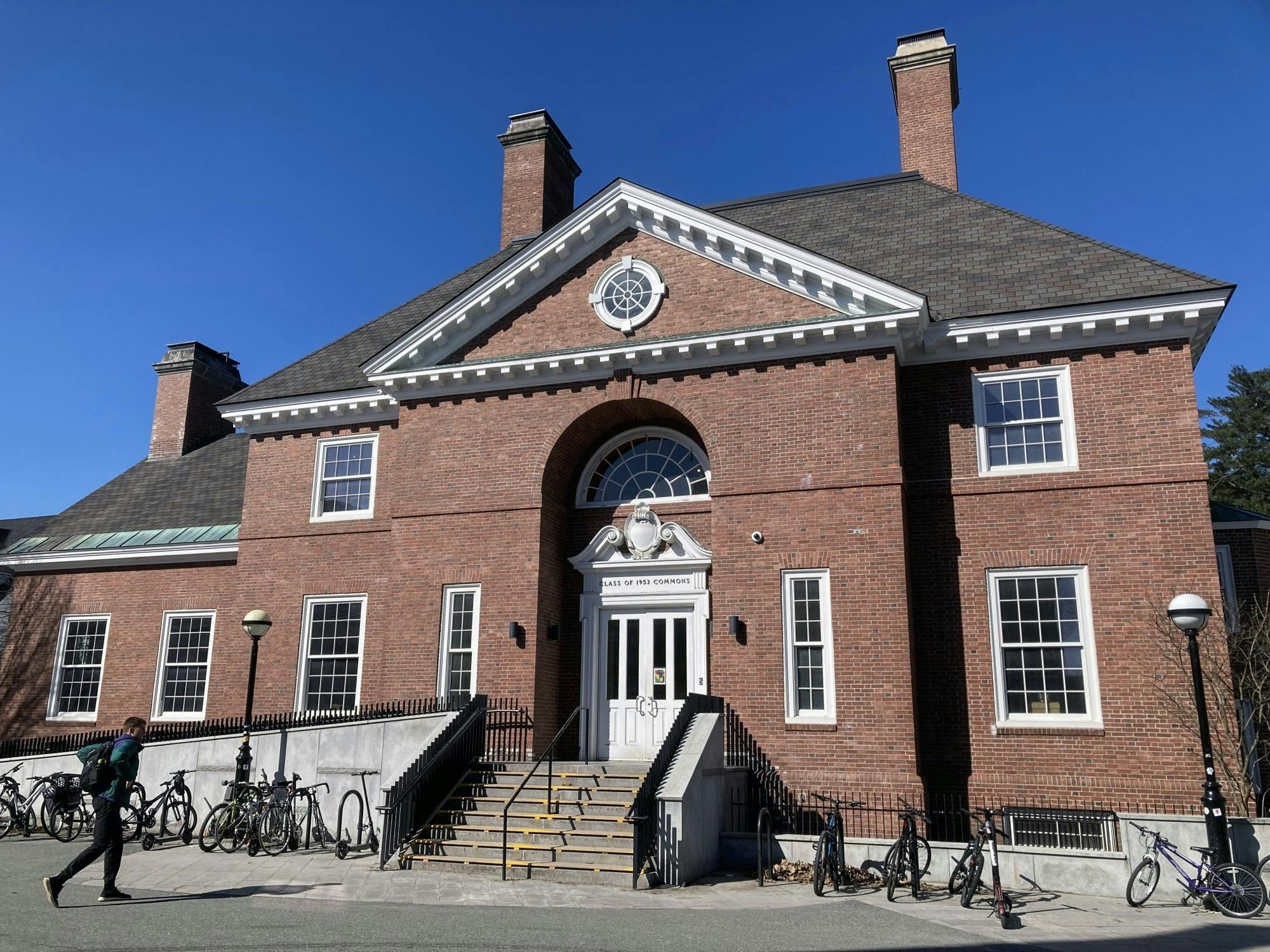As inflation has caused a surge in prices worldwide, food prices for items across Dartmouth Dining have increased — but the value of meal swipes has not grown to compensate for these higher prices. Some students have expressed grievances about the difference between the allotted price of a meal swipe and rising food prices.
“It makes me upset because I feel like every time I buy something, it’s not covered by my swipes,” Anna Pitts ’23 said.“Then I am having to spend my DBA, which seems kind of like it defeats the whole purpose of having meal swipes.”
Swipes offer unlimited dine-in at the Class of 1953 Commons, but can also be used for meal equivalencies at Collis Cafe, Novack Cafe and Courtyard Cafe. The current equivalencies for swipes allotted to each meal period are $5.25 for breakfast, $7.50 for lunch and $10.00 for dinner. However, rising food prices have combined with meal equivalencies that have not changed in value, preventing students from purchasing as much food as they could before.
“I am not a person who likes to go to Foco, so it doesn’t feel worth it to eat there when I would rather be getting the food I would prefer from Collis or Novack,” Pitts said. “But it’s kind of a double standard because if I go [to Collis or Novack], my meals aren’t being covered by the meal swipe, but if I go to Foco, where it is being covered, I’m not able to get what I want.”
Sophia He ’23 said that she remembered during her freshman year, Collis smoothies used to cost “around $4.75,” but now they are “over six dollars,” which exceeds the meal equivalency of a breakfast swipe.
“A breakfast swipe definitely used to cover the cost of a smoothie,” He said.
Dartmouth Dining does not plan on changing the value of meal swipes, according to director of Dartmouth Dining Jon Plodzik.
“Meal equivalencies will never be a perfect method to cover the varied eating habits of the student population, and honestly, we are one of the few schools that even offer them at the level that we do, just because of that challenge,” Plodzik wrote in an emailed statement.
Increasing prices of food are the result of economic inflation across the world, according to economics professor Patricia Anderson. She added that inflation is an aggregate of various factors contributing to food shortages. Globally, Anderson said that the Avian flu is killing off chickens and driving up the prices of eggs, the war in Ukraine has disrupted meat production and issues with labor shortages in the trucking industry have impacted the supply chain of produce coming from Mexico.
“There’s just a perfect storm of inflationary pressures going on right now,” Anderson said. “It’s more of an aggregate supply [and] demand story than a pure monetary story, and so I think it’s a question of when does supply catch up to demand.”
Plodzik wrote that Dartmouth is unique in its meal plan components, as most schools do not offer transfer of meal plan swipes into equivalencies at other campus dining locations. He added that other schools that do have this transfer feature often have restrictions on what discretionary funds can and can’t be used for, unlike Dartmouth. Nonetheless, changing the value of meal swipes would have to happen during the College budgeting process, he wrote.
“We have not changed the equivalency prices since my arrival in 2016 and doing so would need to be part of the College’s budget process,” Plodzik wrote. “The all-you-care to eat venue of 1953 Commons should always be considered the primary venue for meal swipe use based on value and variety. The menu there is very comprehensive and should meet the needs of every guest.”
Correction appended (Apr. 28, 11:00 a.m.): A previous version of this article incorrectly stated that Anderson attributed supply chain issues for produce coming from Mexico to protests at the border. Anderson actually attributed issues with produce coming from Mexico to labor shortages in the trucking industry. The article has been updated.




